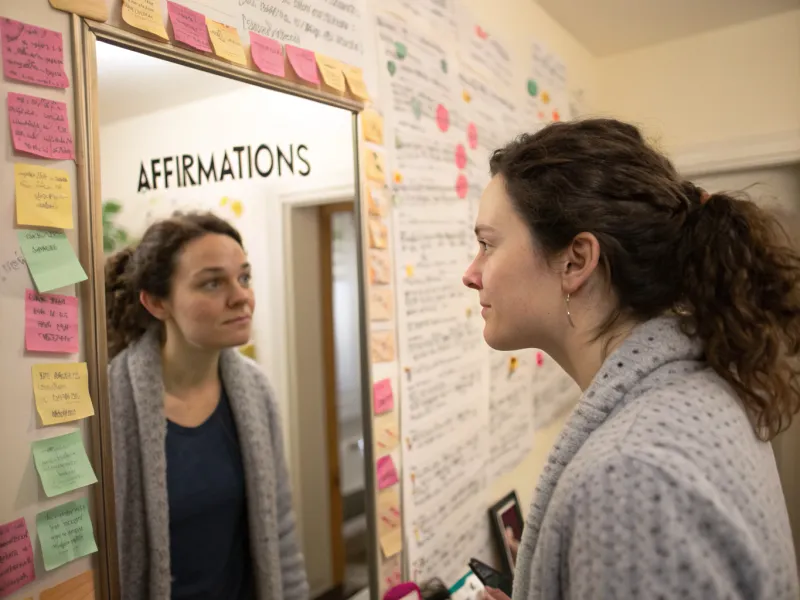30 Types Of Women Who Make Bad Partners

In the realm of love and relationships, compatibility transcends mere attraction. It demands emotional intelligence, communication, and shared values.
Understanding these dynamics is crucial for building fulfilling, healthy connections. Here, you will find a guide to 30 distinct types of women who may face challenges in maintaining healthy partnerships.
This isn’t about blame; rather, it’s about recognizing patterns that may hinder the path to emotional fulfillment. Through personal insights, I aim to help you identify potential red flags, foster self-awareness, and make informed decisions in your love life.
1. The Perpetual Victim

This type of partner consistently sees herself as the victim in every situation, unable to recognize her own role in conflicts. She may unintentionally manipulate situations to gain sympathy, creating an imbalanced dynamic where her partner feels perpetually tasked with the role of rescuer.
In relationships, this behavior creates an unhealthy dependency, often leading to frustration and emotional exhaustion for the partner. When you’re always the rescuer, you lose sight of a balanced partnership where both parties support each other equally.
The perpetual victim often avoids taking responsibility for her actions, hindering personal growth and the development of a mature, reciprocal relationship. Her narrative might involve unfair treatment or constant misfortune, ignoring her potential influence over her circumstances.
2. The Over-Analyzer

The over-analyzer cannot help but dissect every word, gesture, or silence, often reading meanings that aren’t there. Her mind is a constant whirlpool of “what-ifs,” creating a layer of doubt where certainty should reside. This behavior stems from a desire for control and can be exhausting for both partners. In relationships, clarity and certainty are paramount.
The over-analyzer’s incessant questioning and second-guessing can erode trust and spontaneity. Conversations turn into interrogations, and simple statements become puzzles to solve. This relentless scrutiny can make partners feel trapped, as if they’re walking on eggshells to avoid triggering a breakdown.
To overcome this, it’s important for the over-analyzer to trust more and question less. Building self-assurance and confidence in the relationship can provide relief. Partners can assist by offering reassurance and establishing clear, open communication channels. Encouraging mindfulness and present-focused activities can also help in curbing the habit of overthinking. Remember, a healthy relationship thrives on trust and the freedom to be oneself without overbearing analysis.
3. The Drama Queen

For the drama queen, life is a stage, and everyone else is part of her audience. She thrives on emotional highs and lows, often escalating minor incidents into major dramas. This personality seeks attention and validation through exaggerated reactions and constant excitement. While relationships naturally have ups and downs, a drama-driven dynamic is unsustainable.
Her partner might feel like a supporting actor in an endless soap opera, where peace and contentment are quickly overshadowed by chaos. These continuous emotional rollercoasters can lead to fatigue and uncertainty, as partners struggle to keep pace with her ever-changing emotional landscape.
Balancing a relationship with a drama queen requires setting boundaries and fostering understanding. Encouraging her to focus on stability and find excitement in healthier ways is key. Helping her realize that everyday life doesn’t require theatrics cultivates a more harmonious relationship.
4. The Commitment-Phobe

Life And Lessons
Commitment can be intimidating, especially if past experiences have led to fear of vulnerability or loss of independence. The commitment-phobe is perpetually hesitant about defining the relationship, often keeping partners at arm’s length. Her elusive nature can frustrate those seeking a deeper connection. A commitment-phobe’s relationship is a delicate dance of intimacy and distance.
Every step closer might be met with a retreat, leaving her partner feeling confused and insecure. This unpredictable pattern can hinder long-term relationship growth, as both partners struggle to find a stable footing. Overcoming this fear of commitment involves fostering trust and assurance. She must confront her fears and understand that vulnerability can lead to deeper, more meaningful connections.
Partners can support her journey by being patient, communicative, and consistent in their intentions. Encouraging small steps towards commitment rather than giant leaps can help ease her anxiety. Building a foundation of trust enables the commitment-phobe to gradually embrace a shared future, enhancing the relationship’s potential for longevity.
5. The Eternal Optimist

Life And Lessons
While optimism is generally a positive trait, an eternal optimist often ignores reality. She might refuse to acknowledge conflicts or difficulties, believing everything will work out without effort. This can lead to a lack of problem-solving and avoidance of necessary conversations. In relationships, ignoring issues does not make them disappear.
Her partner might feel dismissed or invalidated, as genuine concerns are often brushed aside. The eternal optimist’s reluctance to confront reality can prevent growth and lead to unresolved issues festering beneath the surface. To create balance, it’s important for her to ground her optimism in practicality. Encouraging open, honest discussions about challenges fosters a more substantial, reality-based relationship.
Her partner can help by steering conversations towards constructive outcomes, ensuring both parties feel heard and understood. Developing a shared approach to tackling obstacles strengthens the bond, allowing optimism to be a guiding light rather than a blinding force. This balanced perspective ensures a supportive and resilient relationship.
6. The Control Freak

The control freak desires order and precision in every aspect of life. Her need to manage and direct can extend into her relationship, where she attempts to dictate how things should be done. This behavior can stifle her partner’s sense of autonomy and create tension. While structure can be beneficial, an excessively controlling nature can lead to resentment and rebellion.
This dynamic discourages open communication and mutual respect, as one voice dominates the narrative. For healthier interactions, the control freak must learn to relinquish some control and embrace flexibility. Encouraging shared decision-making and valuing her partner’s opinions build mutual respect and equality.
Partners can support this transition by expressing their needs and preferences openly, fostering an environment of collaboration. Acknowledging that perfection isn’t always achievable promotes a more harmonious, less restrictive relationship, allowing both partners to thrive independently and together.
7. The Negative Nancy

Negativity can cloud any situation, and the negative Nancy often struggles to see the silver lining. Her focus on the worst-case scenarios and inherent skepticism can sap the joy out of her relationship, creating a pessimistic atmosphere. In a partnership, maintaining positivity and hope is crucial.
The negative Nancy’s constant doubt and critique can deter her partner from sharing ideas or dreams, fearing they will be met with resistance or disdain. This persistent negativity strains communication and inhibits emotional intimacy. Shifting this mindset requires cultivating gratitude and positive thinking. Encouraging her to recognize and celebrate small victories fosters a more optimistic perspective.
Building resilience and focusing on solutions rather than problems help in nurturing a positive, constructive relationship environment. By embracing optimism, the negative Nancy can learn to appreciate the beauty in her relationship, enhancing its joy and connection.
8. The Overly Independent

Life And Lessons
Independence is a revered trait, embodying strength and self-sufficiency. However, the overly independent woman may struggle to rely on others, often rejecting help and emotional support. Her fierce autonomy can create distance in her relationship, as her partner feels irrelevant or unnecessary. In a partnership, sharing experiences and responsibilities is vital.
The overly independent woman’s reluctance to lean on her partner can lead to feelings of isolation and inadequacy. This disconnect may prevent deeper emotional bonding and shared growth, as both partners navigate separate paths. Fostering interdependence is the key to bridging this gap. Encouraging her to embrace vulnerability and accept support strengthens the relationship’s foundation.
Partners can foster this balance by being patient, offering help without insistence, and celebrating shared achievements. Valuing collaboration enhances the partnership, allowing both individuals to flourish together and individually. Recognizing that reliance isn’t a sign of weakness but a path to deeper connection can transform the overly independent woman’s relationship approach.
9. The Jealous Partner

Jealousy often stems from insecurity and fear of loss. The jealous partner struggles with trust, frequently doubting her partner’s fidelity or intentions. This suspicion can create friction and anxiety, overshadowing the love and trust that form the bedrock of a healthy relationship.
Constantly questioning loyalty can lead to resentment and distance. Her partner may feel wrongfully accused and burdened by the need to constantly reassure. This dynamic erodes trust and communication, as partners become defensive or guarded, fearing further accusations or misunderstandings.
Addressing jealousy requires building self-esteem and confidence. Encouraging honest discussions about insecurities and establishing transparency can alleviate doubts. Cultivating self-awareness and focusing on positive affirmations help in transforming jealousy into trust, paving the way for a secure and loving relationship.
10. The Attention Seeker

Life And Lessons
Attention Seekers thrive in the spotlight, often doing whatever it takes to be the center of attention. While this can make for exciting social interactions, it can also overshadow their partner’s needs.
In relationships, this need for attention can lead to feelings of neglect or invisibility for the partner. Balancing the desire for attention with genuine connection can be challenging.
Encouraging mutual understanding and shared moments can help address these issues, but the Attention Seeker’s inherent need for the limelight can sometimes be overpowering.
11. The Critic

Life And Lessons
Constructive feedback can be beneficial, but a constant critic can undermine confidence and create tension. The critic often focuses on flaws and mistakes, offering unsolicited advice and judgments that can erode her partner’s self-esteem. In relationships, support and encouragement are crucial for growth and happiness.
The critic’s relentless assessments and corrections can overshadow positive interactions, leading to a sense of inadequacy and frustration. Her partner may feel unappreciated, as efforts and achievements are eclipsed by criticism. Transforming criticism into support involves fostering empathy and understanding. Encouraging her to focus on strengths and offer praise can create a more nurturing environment.
Building a foundation of appreciation and encouragement enhances mutual respect and connection, allowing both partners to flourish. By shifting her focus from criticism to support, the critic can cultivate a positive, affirming relationship dynamic.
12. The Overly Emotional

Life And Lessons
Emotions are an integral part of human experience, but overwhelming emotions can strain a relationship. The overly emotional partner frequently exhibits intense reactions to situations, often leading to misunderstandings and heightened tensions. While emotional expression is healthy, excessive emotionality can overshadow rational discussions and problem-solving.
Her partner may struggle to navigate these emotional waves, feeling overwhelmed or unsure how to provide support. This dynamic can stifle communication and hinder mutual understanding. Promoting emotional balance involves developing coping strategies and emotional regulation skills. Encouraging mindfulness and stress management can help her manage intense emotions constructively.
Building resilience and focusing on constructive solutions enhance the relationship’s stability and harmony. By embracing emotional regulation, the overly emotional partner can foster a nurturing and supportive environment, strengthening the emotional connection and mutual respect within the relationship.
13. The Indecisive Wanderer

Life And Lessons
The Indecisive Wanderer is perpetually unsure of what she wants, whether it’s in daily choices or life-changing decisions. This uncertainty can extend to her relationships, leaving her partner in constant limbo.
Her inability to commit to decisions can lead to frustration and confusion. Partners may find themselves frequently having to make decisions for both, which can become tiresome over time.
While flexibility can be a positive trait, excessive indecision can lead to a lack of direction and create instability in a relationship. Encouraging decisive action can sometimes help, but patience is often required.
14. The Passive Partner

Passivity may stem from a desire to please, but an overly passive partner can lead to imbalance. The passive partner often avoids conflicts, deferring decision-making to her partner and suppressing her own needs and desires. This behavior can create a lack of engagement and mutual satisfaction.
In relationships, active participation and communication are vital. The passive partner’s reluctance to assert herself can lead to frustration, as her partner bears the burden of decision-making and responsibility. This dynamic may stifle growth and prevent the development of a fulfilling, reciprocal partnership.
Encouraging assertiveness and self-expression is key to balancing the relationship. Supporting her in finding her voice and advocating for her needs fosters a more equitable dynamic. Building a foundation of mutual respect and shared responsibility enhances connection and satisfaction. By embracing her role as an active participant, the passive partner can contribute to a vibrant, collaborative relationship, enriching both partners’ experiences and growth.
15. The Perfectionist

Life And Lessons
Striving for excellence is admirable, but perfectionism can become a barrier to happiness. The perfectionist sets unattainable standards, often leading to dissatisfaction and self-criticism. This relentless pursuit of flawlessness can overshadow appreciation and enjoyment.
In relationships, perfectionism can create pressure and strain. Her partner may feel inadequate, unable to meet impossible expectations. This dynamic can hinder emotional intimacy, as both partners grapple with feeling judged or insufficient. Embracing imperfection involves cultivating self-compassion and acceptance. Encouraging her to recognize and appreciate progress, rather than perfection, fosters a more relaxed and joyful relationship environment.
Partners can support this shift by expressing appreciation for her efforts and celebrating achievements, regardless of imperfections. Building a foundation of understanding and acceptance enhances the relationship’s resilience and warmth. By letting go of perfectionism, the partner can embrace a more fulfilling and harmonious connection, allowing love and appreciation to flourish.
16. The Pessimist

Life And Lessons
The Pessimist tends to see the glass half empty, which can cast a shadow over her relationships. Her constant focus on the negative can drain the energy of those around her, often leading to a spiral of perpetual dissatisfaction. She might struggle to appreciate the positive moments, overshadowed by her skeptical view of the world.
This outlook not only affects her own happiness but can also bring down her partner’s spirits. It’s challenging to maintain enthusiasm and positivity when faced with relentless negativity.
Supporting a Pessimist requires patience and open communication. Encouraging her to acknowledge small victories and joys can help shift her perspective towards a more balanced outlook.
17. The Envious Partner

Life And Lessons
Envy can poison any relationship, fueling resentment and discontent. The envious partner struggles with comparison, often feeling inadequate or overshadowed by her partner’s success or happiness. This insecurity can create division and hinder emotional bond. A healthy relationship thrives on mutual support and celebration of achievements.
The envious partner’s inability to share in her partner’s joy can lead to tension and distance, as both navigate feelings of inadequacy and competition. This dynamic detracts from shared happiness and growth, as partners struggle to find common ground. Addressing envy involves building self-worth and celebrating individuality. Encouraging her to focus on personal growth and fulfillment fosters confidence and contentment.
Building a foundation of trust and understanding enhances connection and emotional intimacy. By overcoming envy, the partner can embrace a supportive and joyful relationship, allowing love and success to flourish without competition or resentment.
18. The Workaholic

Life And Lessons
Dedication to work can drive success, but an obsessive focus on career can strain personal relationships. The workaholic often prioritizes professional commitments over relationship needs, leading to neglect and emotional disconnect. Balancing work and relationship is crucial for fulfillment. Her partner may feel undervalued, as work consistently takes precedence over personal time and shared experiences.
This dynamic can foster resentment and loneliness, hindering emotional connection and satisfaction. Creating balance involves setting boundaries and prioritizing relationship time. Encouraging her to allocate dedicated time for personal connection fosters a more harmonious dynamic.
Partners can support by participating in stress-relief activities and expressing the importance of shared moments. Building a foundation of mutual understanding and support enhances relationship resilience and satisfaction. By embracing work-life balance, the workaholic can nurture a fulfilling partnership, allowing love and career to coexist without conflict.
19. The Secretive Partner

Life And Lessons
Secrecy can erode trust and create distance in relationships. The secretive partner often withholds information or feelings, fostering suspicion and insecurity. This lack of transparency can undermine the foundation of trust and open communication.
In relationships, honesty and openness are essential for emotional closeness. Her partner may feel shut out, grappling with doubts and confusion about hidden aspects of her life. This dynamic can hinder mutual understanding and connection, as partners struggle to bridge the gap of secrecy. Fostering transparency involves building trust and encouraging open communication. Encouraging her to share feelings and thoughts without fear promotes a more honest relationship environment.
Building a foundation of trust and openness enhances emotional intimacy and connection. By overcoming secrecy, the partner can embrace a transparent and trusting relationship, allowing love and understanding to flourish.
20. The People Pleaser

Life And Lessons
Pleasing others often comes at the cost of personal well-being. The people pleaser prioritizes external validation, often neglecting her own needs and boundaries. This behavior can lead to burnout and resentment, as her partner grapples with imbalance.
A fulfilling relationship requires mutual respect and self-care. The people pleaser’s constant concessions can create an unequal dynamic, where her partner feels neglected or undervalued. This can hinder personal growth and emotional connection, as both navigate the struggle for balance. Cultivating self-awareness and boundary-setting is essential for healthy relationships.
Encouraging her to prioritize self-care and communicate needs fosters a more balanced dynamic. Building a foundation of self-assurance and respect enhances connection and satisfaction. By embracing her needs and boundaries, the people pleaser can cultivate a fulfilling and balanced partnership, allowing love and appreciation to flourish without sacrifice.
21. The Critically Overprotective

Life And Lessons
Overprotectiveness often stems from fear and insecurity. The critically overprotective partner attempts to shield her loved ones from harm, often crossing boundaries and stifling independence. This behavior can create tension and resentment. In a relationship, trust and autonomy are crucial for growth and happiness.
The overprotective partner’s constant vigilance can lead to frustration, as her partner feels restricted and undervalued. This dynamic can hinder emotional intimacy and personal growth, as both partners navigate the struggle for independence. Addressing overprotectiveness involves building trust and encouraging independence.
Encouraging her to embrace vulnerability and trust her partner fosters a more open relationship environment. Partners can support by expressing their needs for autonomy and reinforcing mutual respect. Building a foundation of trust and independence enhances connection and satisfaction. By overcoming overprotectiveness, the partner can embrace a trusting and empowering relationship, allowing love and freedom to flourish together.
22. The Competitive Partner

Competition can drive achievement but may undermine collaboration in relationships. The competitive partner views her relationship as a contest, often prioritizing winning over understanding and connection. This behavior can create division and conflict.
In a partnership, collaboration and support are essential for growth and happiness. The competitive partner’s focus on rivalry can lead to tension and resentment, as her partner feels undervalued or overshadowed. This dynamic can hinder emotional intimacy and shared success. Fostering collaboration involves embracing teamwork and mutual support. Encouraging her to value shared achievements and celebrate her partner’s success fosters a more harmonious dynamic
Building a foundation of understanding and cooperation enhances connection and satisfaction. By overcoming competitiveness, the partner can embrace a supportive and collaborative relationship, allowing love and success to flourish together.
23. The Technology Addict

Technology enriches lives, but dependence can detract from personal connections. The technology addict prioritizes digital engagement over real-life interaction, often leading to neglect and emotional disconnect. In a relationship, presence and engagement are crucial for connection.
Her partner may feel sidelined, as screens consistently take precedence over shared moments. This dynamic can hinder emotional intimacy and satisfaction, as partners struggle to compete with digital distractions.
Creating balance involves setting boundaries and prioritizing personal connection. Encouraging her to allocate dedicated time for unplugged interaction fosters a more harmonious dynamic. By embracing technology balance, the addict can nurture a fulfilling partnership, allowing love and connection to coexist without digital interference.
24. The Argumentative Partner

Life And Lessons
Arguments are natural, but constant conflict can erode relationship foundations. The argumentative partner thrives on debate and discord, often prioritizing winning over understanding. This behavior can create division and tension. In a partnership, harmony and empathy are crucial for growth and happiness. The argumentative partner’s focus on conflict can lead to resentment and distance, as her partner feels unheard or undervalued.
This dynamic can hinder emotional intimacy and shared success. Fostering harmony involves embracing empathy and understanding. Encouraging her to value communication and collaboration fosters a more harmonious dynamic.
Partners can support by promoting open dialogue and reinforcing the value of empathy, reinforcing the importance of mutual respect and love. By overcoming argumentativeness, the partner can embrace a peaceful and understanding relationship, allowing love and success to flourish together.
25. The Financially Irresponsible

Financial responsibility is crucial, but lack of it can strain relationships. The financially irresponsible partner struggles with budgeting and saving, often prioritizing immediate desires over long-term stability. This behavior can hinder financial security and shared goals. In a relationship, financial planning and support are essential for growth and happiness.
The financially irresponsible partner’s focus on spending can lead to tension and anxiety, as her partner feels burdened or undervalued. This dynamic can hinder financial intimacy and shared success. Fostering financial responsibility involves embracing budgeting and planning. Encouraging her to value savings and prioritize long-term goals fosters a more harmonious dynamic.
Partners can support by promoting open communication and reinforcing the value of financial planning, reinforcing the importance of mutual support and love. Building a foundation of understanding and cooperation enhances connection and satisfaction. By overcoming financial irresponsibility, the partner can embrace a stable and thriving relationship, allowing love and success to flourish together.
26. The Emotionally Distant

Emotional distance can create barriers in relationships, hindering connection and intimacy. The emotionally distant partner struggles to express feelings, often withdrawing from emotional engagement. This behavior can create tension and insecurity. In a partnership, emotional expression and connection are crucial for growth and happiness.
The emotionally distant partner’s focus on detachment can lead to resentment and frustration, as her partner feels unheard or undervalued. This dynamic can hinder emotional intimacy and shared success. Fostering emotional connection involves embracing vulnerability and engagement. Encouraging her to value emotional expression and prioritize connection fosters a more harmonious dynamic.
Partners can support by promoting open dialogue and reinforcing the value of vulnerability, reinforcing the importance of mutual respect and love. Building a foundation of understanding and cooperation enhances connection and satisfaction. By overcoming emotional distance, the partner can embrace a connected and intimate relationship, allowing love and success to flourish together.
27. The Insecure Partner

Life And Lessons
Insecurity can undermine confidence and create tension in relationships. The insecure partner struggles with self-doubt, often seeking validation and reassurance from her partner. This behavior can create imbalance and strain. In a relationship, confidence and support are crucial for growth and happiness. The insecure partner’s focus on doubt can lead to resentment and frustration, as her partner feels burdened or undervalued.
This dynamic can hinder emotional intimacy and shared success. Fostering confidence involves embracing self-love and assurance.
Encouraging her to value self-worth and prioritize confidence fosters a more harmonious dynamic. By overcoming insecurity, the partner can embrace a confident and supportive relationship, allowing love and success to flourish together.
28. The Narcissistic Diva

Narcissistic Divas are often caught up in their own world. They crave admiration and often have a sense of entitlement that can be overwhelming. Their partners may feel like they are in a constant competition for attention.
This type of partner often lacks empathy, making it difficult for them to understand or appreciate others’ feelings. In relationships, their self-centered nature can lead to a lack of genuine connection.
Communicating with a Narcissistic Diva can be exhausting, as everything tends to revolve around her needs and wants. This dynamic can be incredibly draining for her partner.
29. The Chronic Complainer

Life And Lessons
Life with a Chronic Complainer is often filled with negativity. No matter the situation, she finds something to grumble about, leaving her partner feeling like there’s a constant cloud overhead.
This type of person often has difficulty seeing the bright side, and this pessimism can be contagious. Partners of Chronic Complainers may find themselves drained and struggling to maintain their own positivity.
Engaging in meaningful conversation can be a challenge, as discussions tend to devolve into a list of grievances. Encouragement to focus on positive aspects can sometimes help, but persistent negativity often prevails.
30. The Hypersensitive Soul

Life And Lessons
Partners of Hypersensitive Souls need to tread carefully, as these individuals are often easily hurt by words or actions. Their heightened sensitivity can make even casual comments feel like deep wounds.
While compassion is a virtue, this level of sensitivity can become burdensome over time. Constant reassurance and careful communication are required to avoid conflicts.
These partners may struggle to handle constructive criticism, which can hinder growth and create a fragile relationship dynamic. For some, establishing healthy boundaries is key to maintaining a balanced relationship.
